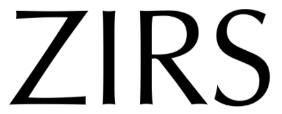
Alarming and continued loss of biodiversity now threatens both the biosphere and human life through failures in fundamental ecosystem service delivery. System-wide transformative changes are needed, including altering paradigms, behaviour and values (IPBES, 2019). To address this, PLANET4B will provide insight into the diverse perceptions of biodiversity and its communication to understand behaviours and motivations around biodiversity prioritisation. Existing multidisciplinary behaviour theories (e.g. framing, nudging, leverage points) that could be applied for biodiversity decision-making will be explored. Factors such as gender, religion, ethnicity, race, age, culture, disability will be reviewed to understand how they can potentially impact biodiversity perception and decision making. Founded on this knowledge, a transdisciplinary framework will be developed for changing attitudes and behaviour in a generative way, which actively embraces the transformative power of plural knowledges and intersectional diversity. Relevant behaviour change (e.g. experiential games), creative and deliberative (e.g. story-telling) methods will be adapted and applied in 11 place-based and sectoral cases from 8 countries, EU and at global level to explore the applicability of these theories and methods for triggering transformative change. Having monitored the impacts of these co-creative and participatory interventions in a range of key sectors, as well as socio-cultural and environmental settings, the findings will be synthesised and scaled up to EU and global levels to serve as inputs for EU and international policies (e.g. implementation of the EU Biodiversity Strategy for 2030, post-2020 global biodiversity framework) and for businesses about how transformative change can be triggered. Target groups, sectors and institutions will be enabled with the gained knowledge and methods to initiate transformative change.
Consortium partners
Martin Luther University of Halle-Wittenberg (MLU Halle), (Germany) [Project Co-ordinator/Scientific Lead]
Coventry University (UK) [Scientific Co-lead]
UNEP-WCMC (UK) [Scientific Co-lead]
Culture Goes Europe Erfurt e.V. (CGE) (Germany)
The Climate Academy (Belgium)
Dadima CiC (UK)
Forum Urbanes Gärtnern (Austria)
Global Change Research Centre, Czech Academy of Sciences (Czechia)
Environmental Social Science Research Group (ESSRG) (Hungary)
The Interdisciplinary Research Centre for Technology, Work and Culture (IFZ) (Austria)
Good Issue Ltd. (Hungary)
Norwegian Institute for Nature Research (NINA) (Norway)
Greater Oslo Council for Outdoor Recreation (Norway)
Radboud University (Netherlands)
Research Institute of Organic Agriculture (FIBL) (Switzerland)
University of Pisa (Italy)
Total budget: 4,671,654.9 Euro
PI and Coordinator: Prof. Dr. Ilkhom Soliev
More information available on the project website: www.planet4b.eu
Press release on PLANET4B by MLU Halle
